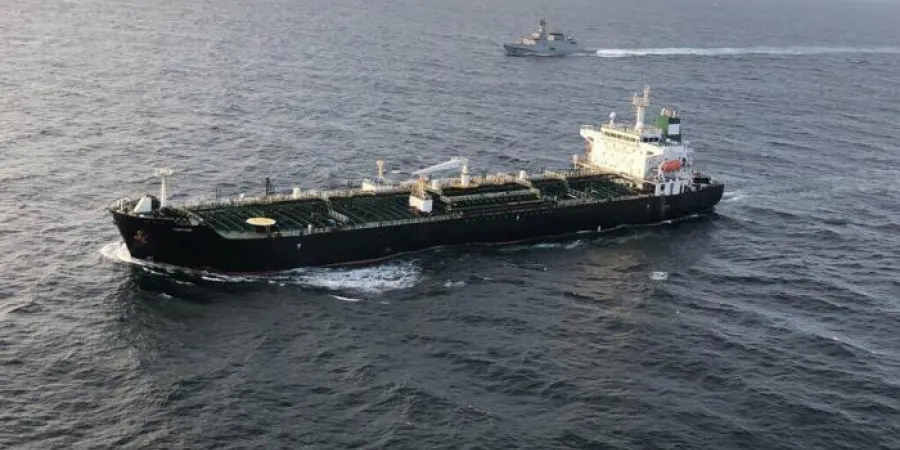Iran's shadow fleet of tankers increases its smuggling of oil to China
It is estimated that during the last year the tankers delivered more than a million barrels of oil a day to China, and more than 300,000 barrels to other countries
Cmdr. (res.) Eyal Pinko
|
28/06/2021
Iran has started to increase its illegal sales of oil despite the sanctions that were imposed on it in 2018 by the administration of then U.S. President Donald Trump. Over the last three years, the Iranian tanker fleet consisting of 123 ships has smuggled oil to countries such as China, North Korea, Syria, Lebanon, the UAE and Venezuela. Each day Iranian ships can deliver about 100 million barrels of oil, worth more than $7.6 billion.
It is estimated that during the last year the tankers delivered more than a million barrels of oil a day to China, and more than 300,000 to other countries. Just this week, the secretary general of Hezbollah, Hassan Nasrallah, declared that Iran would supply oil to Lebanon to help it overcome the huge shortage of oil in the country groaning under economic distress.
In order to conceal the banned activity, the Iranian tankers operate in a number of ways. First, they operate using flags of convenience, meaning the ships are registered with other countries. The tankers also frequently change their registration or their names so that it will be difficult to track them. In addition, the tankers use GPS jammers and broadcast fake GPS signals so that their routes and real locations will not be revealed.
In exchange for the Iranian oil, China is helping Iran build its nuclear program, develop its arms industry and develop cyber and intelligence capabilities. Besides this, the illegal oil sales help the Iranian regime increase its foreign currency reserves, improve the standard of living of the country's citizens, and continue to support its global terror activities.
China opposes the American sanctions imposed on Iran, and over the past year has increased its secret operations with Iran including the smuggling of oil as well as the acceleration of Iran's nuclear program. It can be assumed that the smuggling of oil will only increase under the new Iranian regime.
It is estimated that during the last year the tankers delivered more than a million barrels of oil a day to China, and more than 300,000 barrels to other countries
Iran has started to increase its illegal sales of oil despite the sanctions that were imposed on it in 2018 by the administration of then U.S. President Donald Trump. Over the last three years, the Iranian tanker fleet consisting of 123 ships has smuggled oil to countries such as China, North Korea, Syria, Lebanon, the UAE and Venezuela. Each day Iranian ships can deliver about 100 million barrels of oil, worth more than $7.6 billion.
It is estimated that during the last year the tankers delivered more than a million barrels of oil a day to China, and more than 300,000 to other countries. Just this week, the secretary general of Hezbollah, Hassan Nasrallah, declared that Iran would supply oil to Lebanon to help it overcome the huge shortage of oil in the country groaning under economic distress.
In order to conceal the banned activity, the Iranian tankers operate in a number of ways. First, they operate using flags of convenience, meaning the ships are registered with other countries. The tankers also frequently change their registration or their names so that it will be difficult to track them. In addition, the tankers use GPS jammers and broadcast fake GPS signals so that their routes and real locations will not be revealed.
In exchange for the Iranian oil, China is helping Iran build its nuclear program, develop its arms industry and develop cyber and intelligence capabilities. Besides this, the illegal oil sales help the Iranian regime increase its foreign currency reserves, improve the standard of living of the country's citizens, and continue to support its global terror activities.
China opposes the American sanctions imposed on Iran, and over the past year has increased its secret operations with Iran including the smuggling of oil as well as the acceleration of Iran's nuclear program. It can be assumed that the smuggling of oil will only increase under the new Iranian regime.



